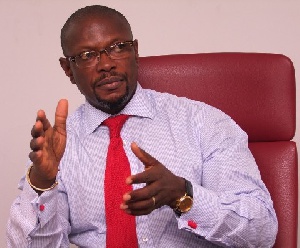The National Communications Authority (NCA) in collaboration with the Telecommunications Chamber will host a workshop in Thursday, November 1, 2012 to address the issues of right of way and cable cuts.
The workshop, slated for Alisa Hotel, will discuss the increasingly rampant cuts to telecoms cables that result in costly disruptions to telecommunications services and inconvenience to subscribers in the country in order to devise strategies at reducing the number of occurrences.
The half-day event which will be opened by Minister for Communications Hon. Haruna Iddrissu is being held in conjunction with the Department of Urban Roads, the Ghana Highways Authority and other roads sector institutions including the Association of Road Contractors (ASROC).
The NCA and Telecoms Chamber have in recent times expressed concern about the increasing spate of cable cuts and, especially, its implications for subscribers hence, the decision to work with all stakeholders to address this and other related issues that fall within the domain of telecommunications.
There have been several cable cuts this year leading to major outages of telecoms services; the majority of it occurring during road works.
Other issues to be discussed include relocation of telecoms cables during road construction, while road sector funding agencies will be asked to consider incorporating telecoms infrastructure at the inception stage of future roads projects as a matter of policy.
It is the aim of the NCA and the Telecoms Chamber to strive continuously towards ensuring that consumers get good quality from any telecommunications services, be it voice or data. In that regard, the Authority conducts routine monitoring exercises to ensure that consumers are provided with excellent services throughout Ghana.
Ghana has commenced the construction of the fibre optic project on the eastern corridor to intensify investments in mobile broadband infrastructure, improve quality of service and enable Ghanaians tap into the next-generation networks and technologies that should support smart education, governance and a knowledge-based economy.
Business News of Thursday, 1 November 2012
Source: Ghana Chamber of Telecommunications

















